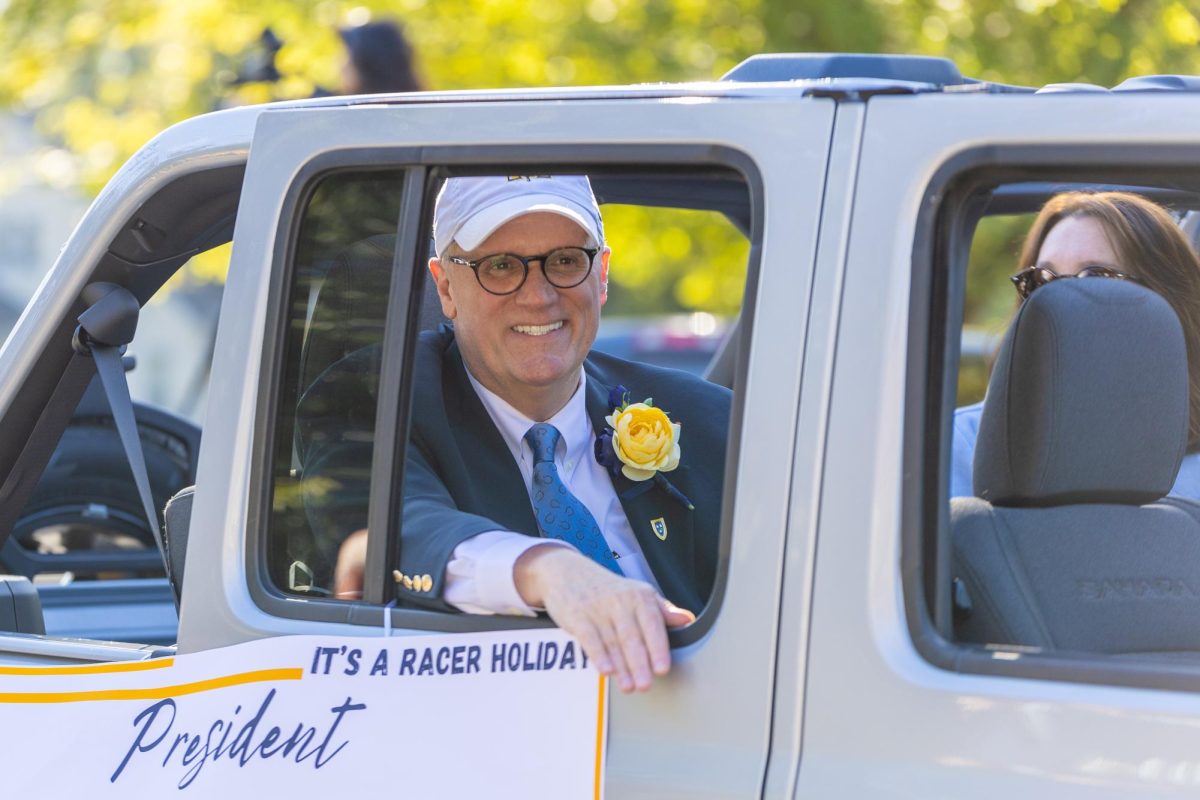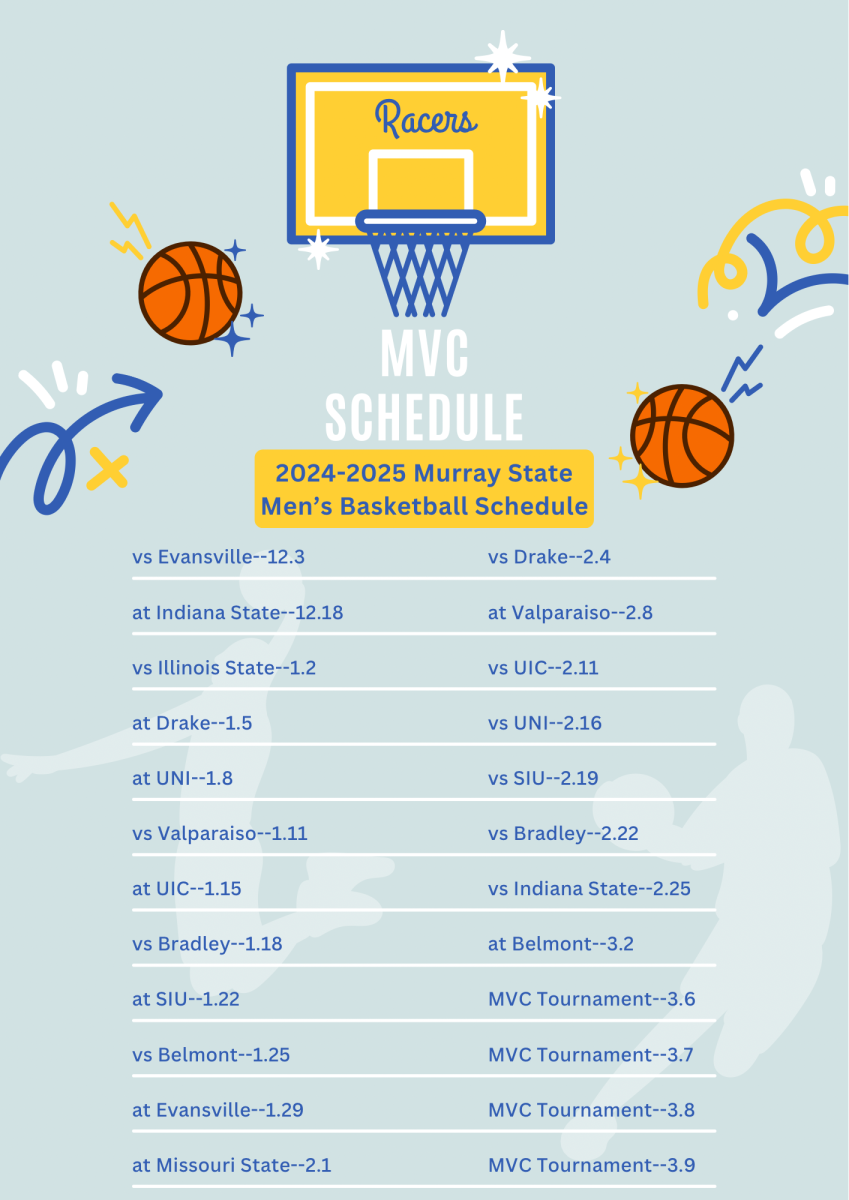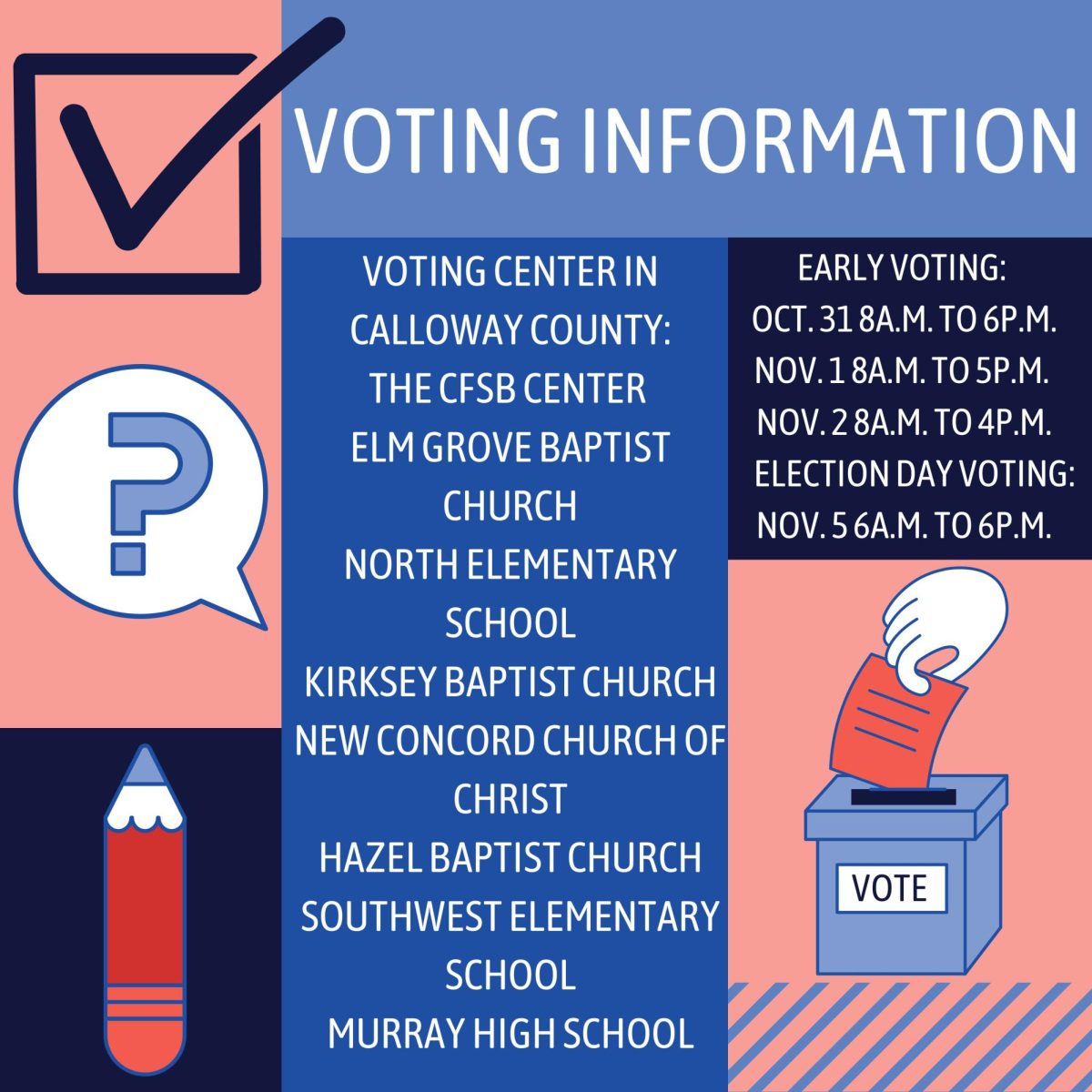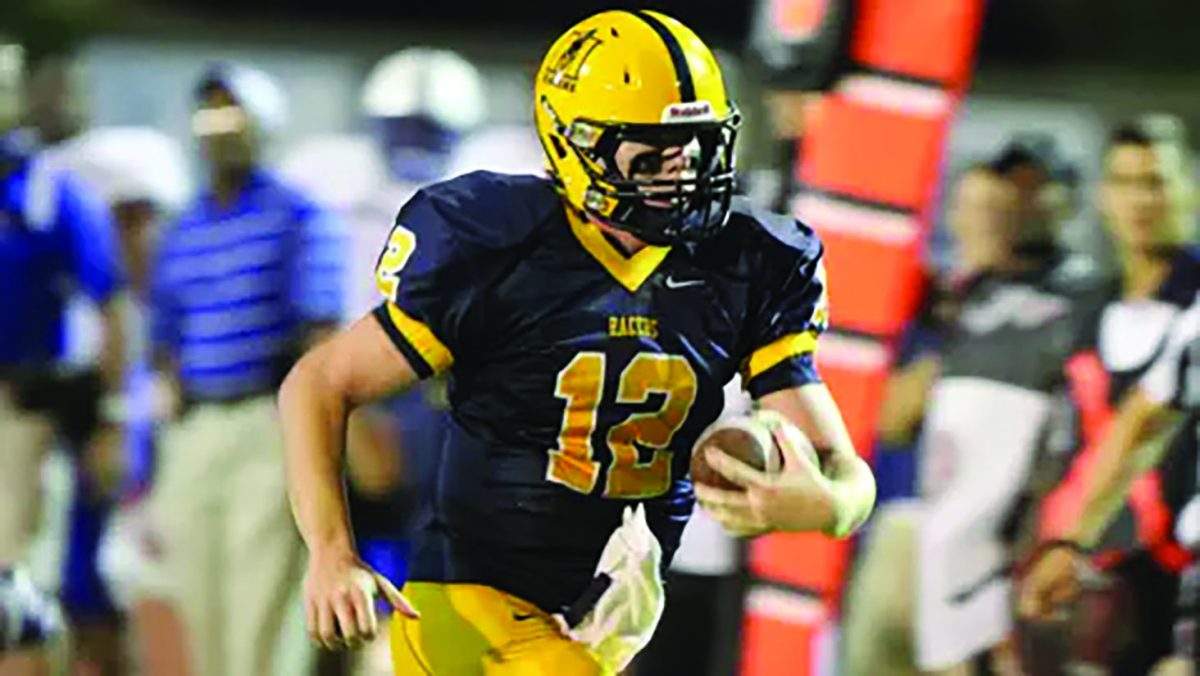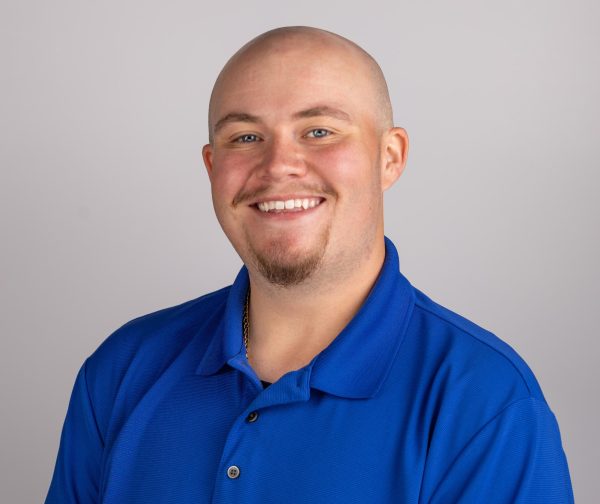This spring has been historical for the University, from the Murray State women’s basketball team’s Missouri Valley Conference (MVC) championship win to the passing of Senate Bill 77. The end of the semester is on the horizon and so is retirement for Murray State President Bob Jackson.
The Murray State women’s basketball team won their first MVC championship in only their third year in the league and earned their second ever NCAA Tournament appearance in program history. The Murray State rifle team won their fifth straight Ohio Valley Conference championship and qualified for their 11th NCAA appearance.
Jackson praised Murray State’s student athletes and coaches after a successful season for both the rifle team and the women’s basketball team.
“(I’m) proud of our teams, especially our women’s basketball team,” he said. “What a season, they did a fantastic job. It’s been a historic year. To win the Missouri Valley Conference three years (into it) is pretty good… We don’t recognize the rifle program enough, but they went to the NCAA tournament too and did extremely well.”
Aside from the victories in sports, Murray State is celebrating a victory in legislation. The idea of a veterinary sciences school at Murray State was first introduced over 50 years ago. For the past two years, Murray State administration has conducted feasibility studies, met with lawmakers in Frankfort, received funding and gained support from numerous individuals and organizations to combat the veterinary shortage in the Commonwealth. On March 25, that idea became a reality once SB 77 was signed into law.
Jackson said he is already putting together a task force to begin the next phase.
“The co-chairs will be Dean (Brian) Parr and (Assistant Vice President of Public Affairs) Jordan Smith and they will set up a meeting in the days ahead to discuss our next steps to forming a doctorate in veterinary medicine,” he said. “We received funding in the 2024 legislative session for the veterinary sciences building, which is a $60 million building that is in design as we speak.”
Jackson also said he is very grateful for all of the support.
“We are grateful to all of our legislators that played a role in passing this bill,” he said. “It allows the comprehensive universities to offer doctoral programs, whether it’s a doctorate in veterinary medicine or a PhD program in some particular field.”
Although there has been criticism about Murray State’s pursuit of a veterinary sciences school, Jackson said this will be a large part of the solution to the state’s veterinarian shortage.
“Go to Murray State’s website and look at the groups that have supported us,” he said. “The Poultry Foundation, pork producers… When you look at rural Kentucky and the maps that we use, 80 of the 120 counties in the state have a severe shortage. We are one of the most agriculturally focused states that doesn’t have a school of veterinary medicine.”
The Kentucky Department of Agriculture also formed a task force in 2022 to investigate the Commonwealth’s veterinary shortage. The task force’s research was released in 2023 and recommended four avenues of approach to resolve the shortage, according to the Kentucky Department of Agriculture.
As the University advances, so does technology. Eighty six percent of students reported using artificial intelligence at some point in their studies, according to campustechnology.com. Although Murray State doesn’t have an official AI policy currently, Jackson said there is discussion about AI and its impact on higher education nearly everyday.
“In regard to the syllabi, we provide templates to every faculty member here with about three or four AI statements that a faculty member can use,” he said. “Every faculty member controls their classroom, some may want to use AI more than others and some may not want to use it at all.”
AI is a hot topic that the state has established a special committee of artificial intelligence task force with a responsibility to track and study how it is being used, developed, advanced and impacts the state.
Another hot topic in the state has been House Bill 4 and House Bill 424. Although both bills were vetoed by Gov. Andy Beshear, the vetoes were overridden and now sit with the secretary of state.
HB 4 seeks to rid of Diversity, Equity and Inclusion initiatives and its limits in higher education. The bill would affect faculty, students and staff at any higher education institution in Kentucky. HB 424 would require performance evaluations every four years and allow for the removal of employees who fail to meet the criteria. Jackson said the University is working to adhere to the new laws.
“It’s the law effective on July 1st,” he said. “We will adhere to it like we do to all other laws, so there will be policies and procedures put in place accordingly.”
The University is working with David Roach, president of Faculty Senate, and its respective committee on recommendations for policies according to each new law.
The University is not only adjusting to new legislation but will soon make a relationship with a new president. Ron Patterson, current president of Chadron State in Nebraska, accepted the position on March 10. Jackson said he is confident that Murray State will be in good hands.
“Ron is a well known and well respected president at Chadron State out west and he will be a great addition to this University,” he said. “He’s coming in in May and we will take a couple days to talk about transition related matters. Getting him up to speed, but also what has been our planning on the school of veterinary medicine and the new school of nursing.”
Jackson is not only ready to assist in Patterson’s transition to presidency at Murray State but also for his own transition into retirement. He said he is very grateful for all the opportunities he has received.
“I’m grateful for the time here, the time served,”Jackson said. “Karen and I are both excited for the future. Forty-three years ago I walked on this campus as a student, I’ve been in administration roles here for 21 years and I’ve been president for seven years. The University is in a good place because of the faculty, the staff and especially the students.”



























































































